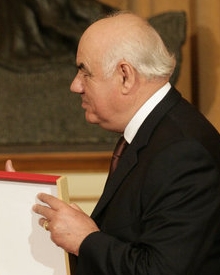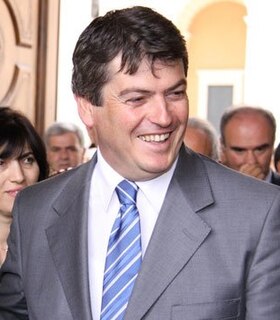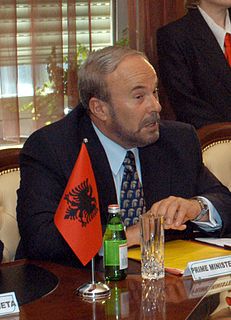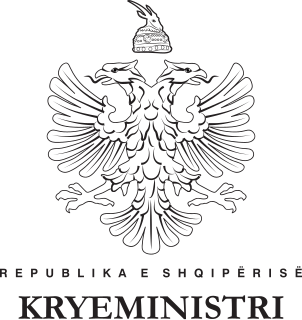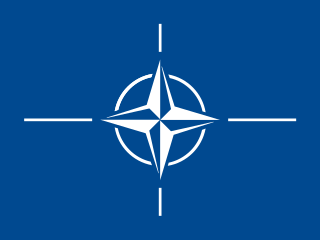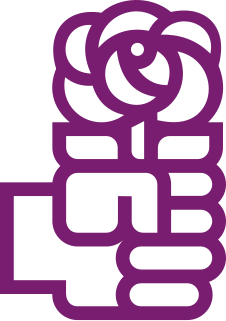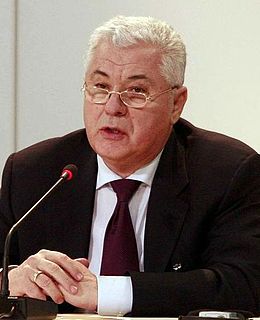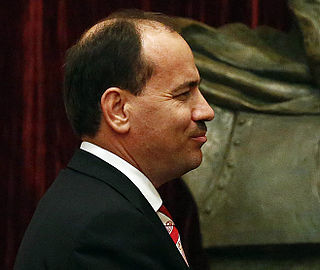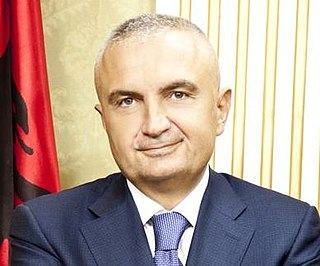| ||||||||||||||
| ||||||||||||||
| ||||||||||||||
Indirect presidential elections were held in Albania on 20 and 27 June, [1] 8, 11, [2] 14, [3] and 20 July, [4] the sixth such elections since the collapse of the communist regime in 1991.
An indirect election is an election in which voters do not choose between candidates for an office, but elect people who then choose. It is one of the oldest forms of elections, and is still used today for many presidents, cabinets, upper houses, and supranational legislatures. Presidents and prime ministers can be indirectly elected by parliaments or by a special body convened solely for that purpose. The election of the executive government in most parliamentary systems is indirect: elect the parliamentarians, who then elect the government including most prominently the prime minister from among themselves. Upper houses, especially of federal republics, can be indirectly elected by state legislatures or state governments. Similarly, supranational legislatures can be indirectly elected by constituent countries' legislatures or executive governments.

Albania, officially the Republic of Albania, is a country in Southeast Europe on the Adriatic and Ionian Sea within the Mediterranean Sea. It shares land borders with Montenegro to the northwest, Kosovo to the northeast, North Macedonia to the east, Greece to the south and a maritime border with Italy to the west.
The fall of Communism in Albania, the last such event in Europe outside the USSR, started in earnest on December 1990 with student demonstrations in the capital, Tirana, although protests had begun earlier that year in other cities. The Central Committee of the communist Party of Labour of Albania allowed political pluralism on 11 December and the largest opposition party, the Democratic Party, was founded the next day. March 1991 elections left the Party of Labour in power, but a general strike and urban opposition led to the formation of a "stability government" that included non-communists. Albania's former communists were routed in elections in March 1992 amid economic collapse and social unrest, with the Democratic Party winning most seats and its party head, Sali Berisha, becoming president.
Contents
The President of Albania is elected through a secret vote and without debate by the Parliament of Albania by a majority of three-fifths majority of all its members. The Constitution of Albania sets a limit to a maximum of two terms in office. [5] When this majority is not reached in the first round of voting, a second round takes place within seven days. If such a majority is still not reached, a third round must take place within a further period of seven days. If even in the first three rounds no candidate has attained the necessary majority, a further two rounds must be held within seven days, with the majority needed to win being reduced to an absolute majority (50% + 1 vote) vote of the total members of the Parliament. If after five rounds of voting no candidate has attained the necessary majority outlined for each round of voting in the Parliament, the Parliament will be dissolved and a general election must occur within 60 days. [6]

The President of Albania, officially styled the President of the Republic of Albania, is the head of state, commander-in-chief of the military and the representative of the unity of the Albanian people.

The Parliament of Albania or Kuvendi is the unicameral representative body of the citizens of the Republic of Albania; it is Albania's legislature. The Parliament is composed of not less than 140 members elected to a four-year term on the basis of direct, universal, periodic and equal suffrage by secret ballot. The Parliament is presided over by a Speaker of the Parliament, who is assisted by at least one deputy speaker. The electoral system is based on party-list proportional representation. There are 12 multi-seat constituencies, corresponding to the country's administrative divisions.
It is the fundamental law of the Republic of Albania. The present Constitution of Albania was adopted by the Parliament on 28 November 1998. It is split up over many different acts. The document succeeded the 1976 Constitution, originally adopted at the creation of the People's Socialist Republic of Albania on 28 December 1976 and heavily amended on 29 April 1991.

